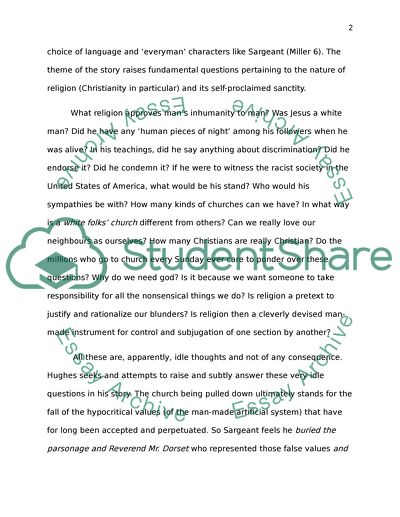Cite this document
(“On the Road by Langston Hughes Research Paper Example | Topics and Well Written Essays - 1250 words”, n.d.)
Retrieved from https://studentshare.org/literature/1422638-on-the-road
Retrieved from https://studentshare.org/literature/1422638-on-the-road
(On the Road by Langston Hughes Research Paper Example | Topics and Well Written Essays - 1250 Words)
https://studentshare.org/literature/1422638-on-the-road.
https://studentshare.org/literature/1422638-on-the-road.
“On the Road by Langston Hughes Research Paper Example | Topics and Well Written Essays - 1250 Words”, n.d. https://studentshare.org/literature/1422638-on-the-road.


